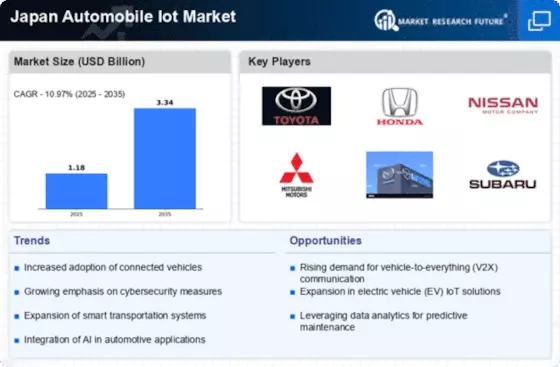Technological developments and shifting consumer expectations are driving major trends in the Japanese automotive IoT market. One major factor driving the market is the growing emphasis on connected cars, as tech firms and automakers place a higher priority on integrating IoT technology to improve vehicle performance and safety.
The Ministry of Land, Infrastructure, Transport, and Tourism's programs encourage the development of smart transportation systems that use IoT for real-time data interchange, demonstrating Japan's dedication to creating cutting-edge vehicle technologies. There are several opportunities in the field of smart logistics and transportation, where IoT may increase productivity and streamline processes.
As Japan's population ages, there is an increasing need for connected and automated car solutions to guarantee safer transportation, particularly for senior folks. Additionally, there are many opportunities for the IoT sector to contribute to sustainable automotive technologies due to the government's measures to encourage electric vehicles and the demand for greener transportation choices.
Collaboration between automakers, IT companies, and academic institutions to develop IoT applications in transportation has significantly increased in recent years. Emerging developments in vehicle-to-everything (V2X) communication enable automobiles to communicate with infrastructure, improving safety and traffic control.
Cities in Japan are looking at IoT technologies to improve traffic flow and lower emissions as they struggle with urban congestion. These trends are further supported by the nationwide rollout of 5G technology, which improves the efficiency and dependability of real-time data transmission.
These advancements in the automotive IoT market in Japan highlight a revolutionary move toward safer, smarter, and networked transportation options.
























